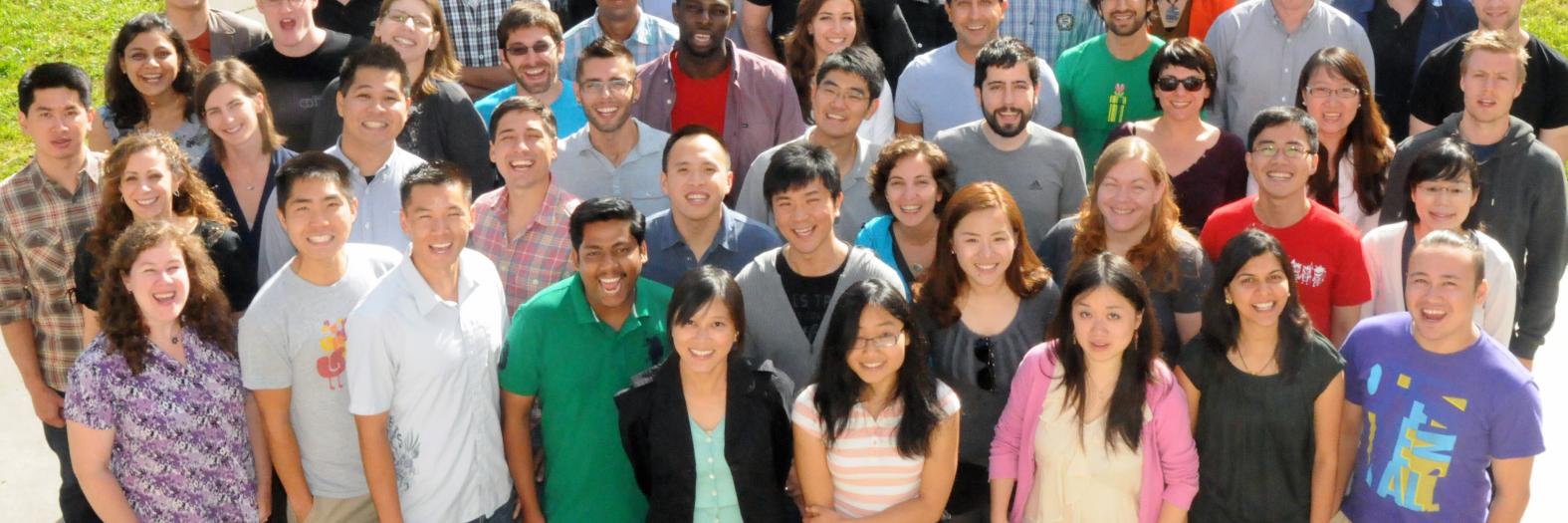The School of Information kicked off the 2011–2012 academic year by welcoming 44 new students to South Hall.
The four new doctoral students and 40 new MIMS students arrived on campus on Wednesday, August 24, for a day-long orientation, before beginning classes on Thursday.
The majority of the new master's students are returning to school from the working world, with an average of six years of experience in information-related fields. One-quarter are international students, from countries such as China, Germany, India, Korea, and Taiwan.
The students' accomplishments before joining the I School are wide-ranging and varied. Their resumés include entries like:
- Senior designer for Frog Design
- Information security officer for the California Lottery
- Software engineer at IBM
- Interaction designer at Shopping.com
- Economist at the Internal Revenue Service
They have worked for organizations as varied as Tata Consultancy Services, the UC Berkeley Center for Criminal Justice, and One Laptop Per Child. One cofounded George Mason University's THATcamp; another runs 5K and 10K races barefoot; another received an outstanding volunteer award at the 2008 Beijing Olympics.
The I School also welcomes four new doctoral students this year — two of whom are already familiar faces around South Hall.
Nick Doty and Andy Brooks both return to South Hall after graduating with the MIMS degree in 2010. Nick Doty is researching the impact of technology and policy on personal privacy; he has recently co-authored several studies of privacy and technology, and his discoveries of mobile locational privacy lapses have recently made the news. Andy Brooks recently worked with Yahoo! Research to explore everyday consumer use of mobile devices; his research focuses on consumer and business-oriented information networks: how we interact with these networks, the effects of network design on behavior, and how these networks emerge alongside and interact with existing networks.
Laura Devendorf is an artist, designer, and computer scientist with college degrees in both computer science and visual art; she develops tools and devices that offer an innovative approach to information access, and is interested in the relationship between user engagement and the aesthetic experience. Sebastian Benthall's background is in both cognitive science and political science; he recently helped launch a new open-source GIS software development community, and is interested in studying the ways such communities solve large-scale collective action problems.










